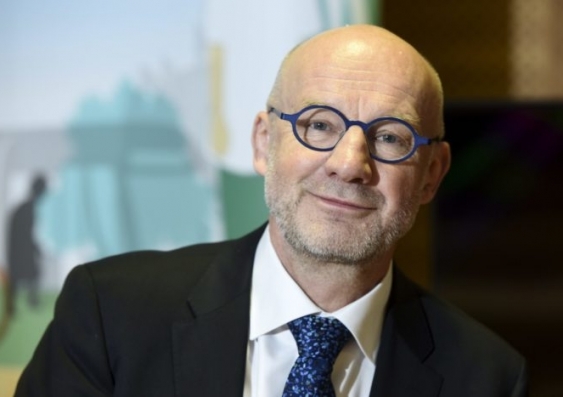Professor Olli Kangas will discuss what happened when Finland paid unemployed people a basic wage for two years

Professor Olli Kangas will discuss the political process behind the making of the trial and preliminary results of the Basic Income Experiment at the 2019 Australian Social Policy Conference at UNSW.
One of the architects behind Finland’s social experiment that paid unemployed people a basic income for two years is the opening plenary speaker at the 2019 Australian Social Policy Conference (ASPC) at UNSW next week.
Professor Olli Kangas will discuss the political process behind the making of the trial and preliminary results of the Basic Income Experiment.
“The basic income is a form of social security in which all citizens receive a regular, unconditional sum of money towards their expenses,” Professor Kangas said.
“It is intended to reduce the amount of work involved in seeking financial assistance and to free up time and resources for other activities such as working or seeking employment.”
Professor Kangas is the leader of the research group evaluating the Finnish basic income experiment. He is the director of the Equal Society research program at the Academy of Finland and Professor of Practice at the Department of Social Research at the University of Turku.
The ASPC is a return to UNSW for Professor Kangas who was a Visiting Professor in the Social Policy Research Centre (SPRC) at UNSW from autumn 1999 to spring 2000. During the conference’s opening plenary session What – if anything – can we learn from the Finnish basic income experiment? Professor Kangas will sit down with Professor Peter Saunders from the UNSW SPRC to discuss the experiment and what researchers have found.
Preliminary results from the experiment found that basic income recipients who received €560 a month were no more or less likely to find work than a control group who did not receive the payments. The study compared 2,000 unemployed people on an assured income with a control group. The final report on the experiment will be released in 2020.
Professor Kangas outlined several factors that may have contributed to the zero results achieved in the first year, including a lag time before behavioural effects are visible and the possibility that the effects of the basic income counteracted each other.
“Since the preliminary results for the first year do not display any significant employment effects, the opponents of the BI claim that the BI fails,” Professor Kangas said.
“However, we can turn the focus upside down. According to the proponents of the mainstream labour market policies in Finland, we should have witnessed a clear decrease in the labour supply among the BI receivers compared to the control group. However, we did not observe anything like that. The employment rate was not any better in the control group that remained in the current, conditional benefit system.”
Though the experiment did not result in any significant employment effects, those who received the payment reported significantly better overall wellbeing and happiness, including fewer stress symptoms, fewer health problems and less difficulty in concentrating.
“The mechanism improving the labour market status of unemployed is much more complex and perhaps more attention should be paid in the wellbeing effects of the experiment than on the employment effects,” Professor Kangas said.
“This is done in many other experiments outside Finland – in the evaluation of the experiments the focus is on wider dimensions of activity and wellbeing.”
The ASPC is the pre-eminent multidisciplinary conference concerned with issues of social policy in Australia and beyond. More than 300 participants from academia, government and the community social welfare sector internationally are expected to attend the conference from 9 – 11 September.
Leading national and international researchers and analysts from government and community social welfare sectors in Australia and internationally will present their research findings and debate their implications.
The ASPC conference will be organised around the themes of poverty, welfare and social inequality; communities, families and children; digital technologies and social policy; environment and social policy; disability and rights; human services; ageing; health and social policy; Indigenous peoples; and Chinese social policy.
The closing plenary session, Perspectives on Poverty and Inequality in Australia, explores three different perspectives on poverty and inequality in Australia – the academic, the advocate and the lived experience perspective, drawing on the strengths of the Poverty and Inequality Partnership between the Australian Council of Social Service (ACOSS) and UNSW.







69cba92a-ea8f-44ce-bfec-4dab42e7e2c0.jpg?sfvrsn=a6461a8c_1)
